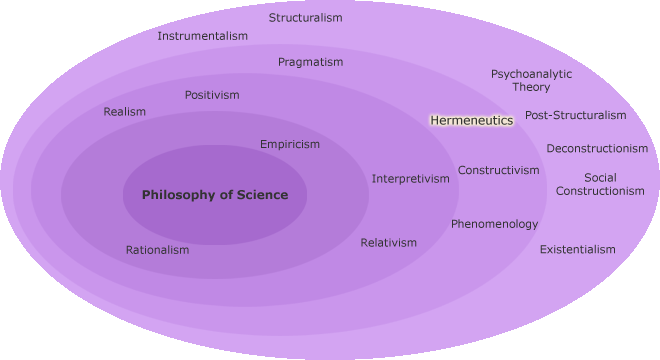Hermeneutics
by Tanja Tuulikki Välisalo
—
last modified
Mar 09, 2010 01:55 PM

Hermeneutics stresses the understanding and interpretation of meaningful processes and phenomena.
- Human action is seen as intentional, and thus, the action and its results are seen as including various meanings.
- Knowledge is formed through perceiving relationships between phenomena and their contexts, and by exploring phenomena in relation to other similar kinds of phenomena and their development.
- Knowledge is understood as a continuous process in which interpretations and knowledge are renewed.
- The process of the formation of knowledge is known as the hermeneutic circle.
- Interpretation of details has an effect on the interpretation of the whole, and re-interpretations of previous interpretations of the researched phenomenon produce an ever deepening understanding of the phenomenon.
Hermeneutics is a key interpretivist orientation.
Links to more information:
Hermeneutics. Wikipedia, The Free Encyclopedia.
Read what is written in Strategies on hermeneutic research.
Read what is written in Data Analysis on hermeneutic analysis.
